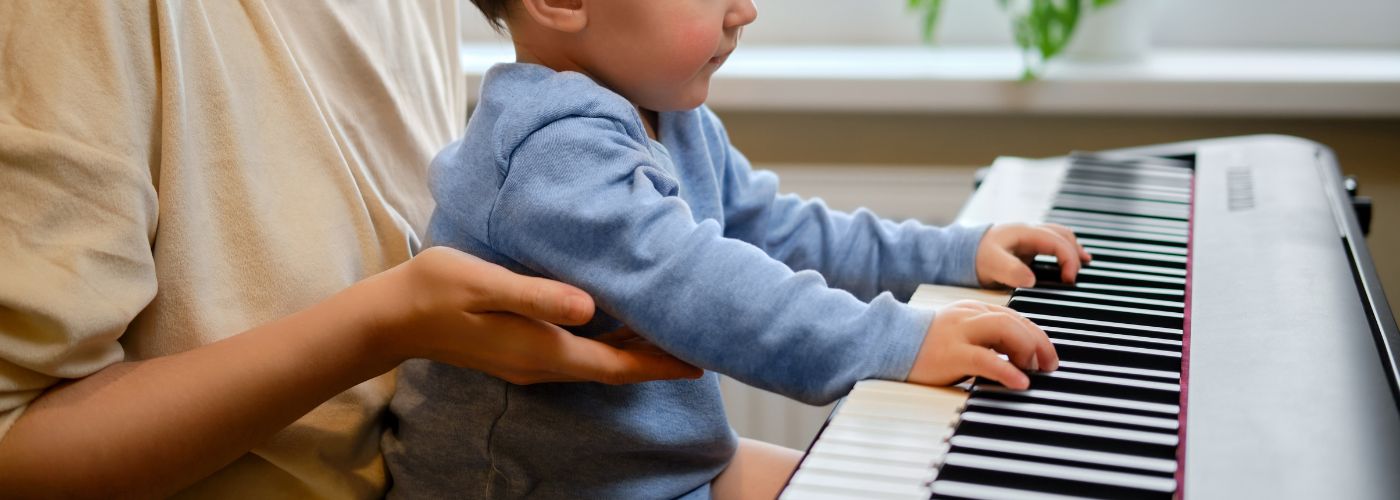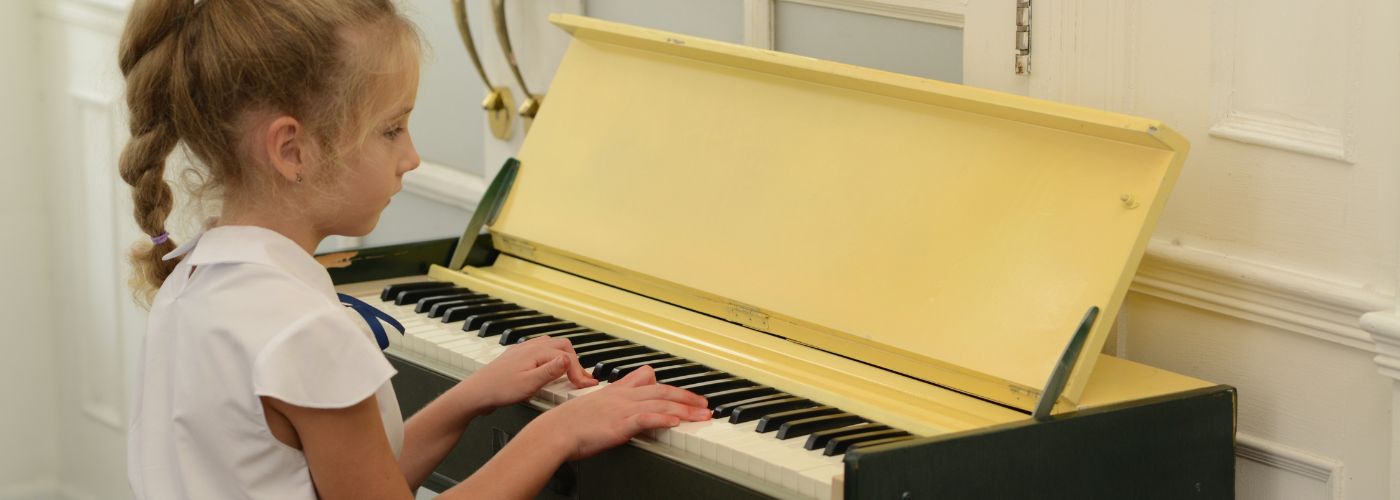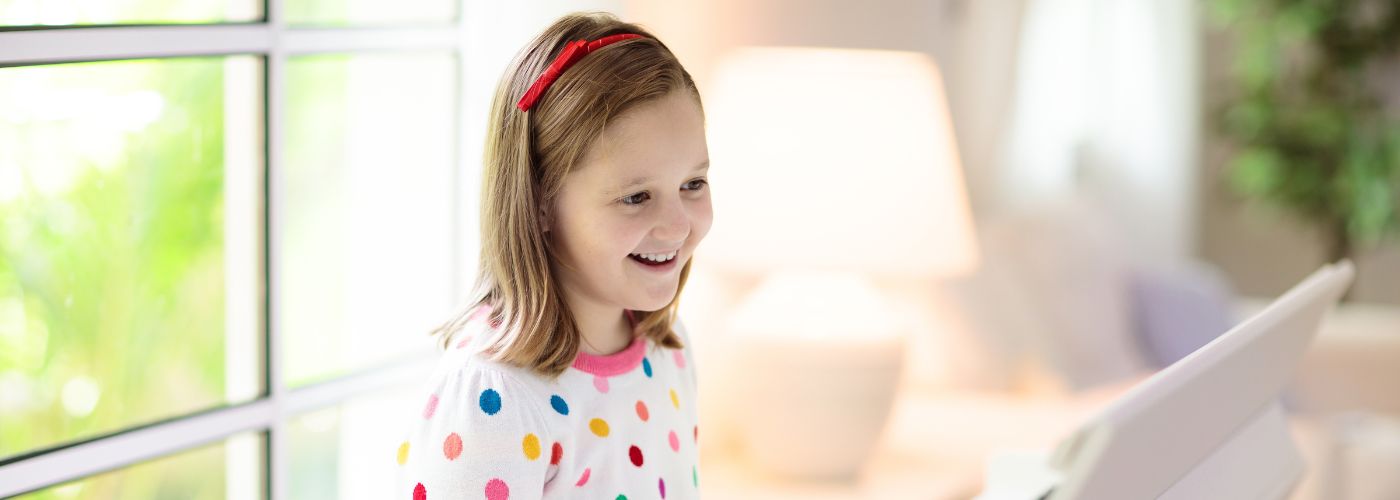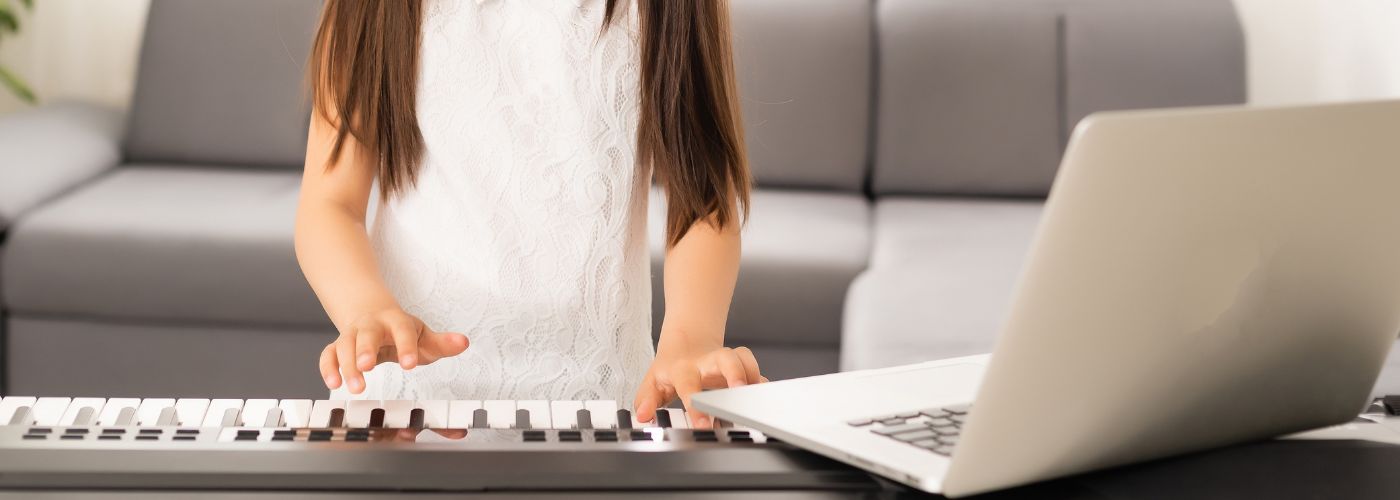Playing the piano is a great way to nurture your child’s creativity and development. Not only does it provide a creative outlet, but it also offers numerous benefits for toddlers, such as developing motor skills, promoting confidence, and even bolstering academic achievement. We’ll be discussing the many benefits of piano lessons for toddlers.
When Can Kids Start Piano Lessons?

Starting kids in piano lessons can be a great way to help them develop important musical skills. But how young is too young? It’s important to consider your child’s developmental stage before enrolling them in formal education.
Generally speaking, the recommended age for beginning piano lessons is six or seven years old. At this age, children have the ability to take direction and follow instructions. They also have the attention span necessary for longer practice sessions and are capable of understanding basic concepts such as rhythm and pitch. Additionally, they can read simple music notes which is essential for beginner piano playing.
However, if your child shows strong interest in music before age six, there are other ways you can nurture their musical development until they’re ready for more advanced lessons.
How To Get Kids Excited For Piano Lessons
One of the most rewarding activities for children is learning how to play the piano. Not only does it give them a creative outlet, but it can also help develop their coordination and organizational skills. If your child is having trouble getting excited about taking piano lessons, there are some fun and effective ways to get them involved and motivated.
First, make sure your kids are aware of all the different types of music they can learn on the piano from pop music to classical and jazz music. Showing them examples online or with sheet music can get them interested in exploring different styles and finding what they like best.
You may want to consider giving your child a choice in deciding which type of lesson plan works best for their individual needs or interests.
Another way to get kids excited about playing the piano is by making piano practice time fun! This can be done by thoughtful exercises that engages them completely into the music.
Do Online Piano Lessons Work For Kids?
Do online piano lessons work for kids? This is a question that many parents are asking as more music education moves to the virtual realm. With the technology now available, it’s possible for children to learn from remote instructors in real-time, without having to leave their homes.
The benefits of online lessons include convenience and affordability; however, there are still some questions about whether this type of instruction is effective for kids.
Research has shown that online learning can be an effective way to teach music skills such as playing the piano.
Studies have found that kids who participate in online piano lessons show improvements in their ability to read notes, play melodies, and develop a deep understanding of musical concepts.
Additionally, many students find it easier to focus on their lessons when they’re working with an instructor remotely than when they’re sitting across from them in person.
How To Plan Piano Lesson For Kids
Piano lessons can be fun and rewarding for both kids and parents alike. But it’s important to plan the piano lesson in a way that helps keep kids engaged and motivated. Here are some tips on how to plan piano lessons for kids that will help them learn music easily and effectively.
Begin by allowing your child to select their own music, as this will help boost their enthusiasm for learning the instrument. Consider enrolling them in group classes or individual lessons, depending on their age and skill level.
It may also be helpful to provide fun activities like musical games or coloring worksheets during breaks between practice sessions. Make sure the lesson plan is structured: start from basic concepts, then progress through more complex topics at an appropriate pace for your child’s abilities.
It also very important to have a piano teacher guide the child through the lesson in a patient yet engaging and fun manner. This only increases their chances of wanting to keep playing their instrument and continue their musical journey.



Continue Reading
Creative Ways to Encourage Practice at Home for Young Musicians
Have you ever watched a child lose interest in their instrument after just a few
Jul
Top Breath Control Exercises For Singers
Have you ever noticed how some singers seem to effortlessly hold long notes while others
Jun
How Does The Suzuki Piano Method Work?
Have you ever wondered why some children seem to pick up music so effortlessly? The
May